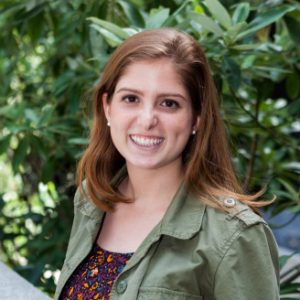Systems Science and Engineering Major
The Systems Science and Engineering (SSE) program specializes in those aspects of engineering that pertain to effectiveness of whole systems. Systems engineers address complex problems in areas such as electrical systems, information systems, economic and finance systems, environmental control, telecommunications, transportation, project management, and manufacturing. Systems engineering is not about specific technologies, but how to put heterogeneous technologies together to formulate solutions to complex problems. In contrast to other engineering specialties that are grounded in certain technologies, systems engineering is grounded primarily in mathematics and methodology.
UPDATE FALL 2024: Systems engineering is not about a specific technology, but how to harness them to improve the effectiveness of whole systems. This requires the ability to integrate information, analyze data, and use the resulting insights to improve decision making. The technical core is a set of mathematical tools rooted in optimization and probability theory. Over time, these tools have become the fundamental building blocks of what is now called Artificial Intelligence (AI). At the same time, the scope of AI has changed from its original one of simulating or creating intelligence. Now, the focus is on augmenting intelligence (eg search engines and natural language translation) and, most relevant for systems engineering, the creation of pervasive intelligent infrastructure. This is a natural evolution of the tools and traditions of systems engineering to fit the AI-powered needs of the 21st century. In recognition of this, the ESE department is sunsetting the Systems Science and Engineering undergraduate major. In its place is a new major, delivered in collaboration with the CIS department, that will prepare the next generation of students to leverage the power of AI and shape the future of engineering systems. We will continue to support all exiting SSE undergraduate students to their completion of the SSE degree by offering courses and advising. The Systems Engineering masters’ degree continues for those who want to pursue ‘traditional’ systems engineering at Penn.
Watch: What is Systems Engineering?
Why choose Systems Engineering at Penn?
Systems Engineers provide technical management for societal-scale problems that often encompass the connections between the physical and the information world. Examples of the many cutting-edge applications of Systems Engineering include autonomous robotics, smart buildings, national power grid management, global networks, service optimization, and biological systems.
Penn has re-engineered the systems curriculum for the twenty-first century. Find out if Systems Engineering may be the right fit for you by exploring the resources below.
Systems Science and Engineering (SSE) Degree Requirements
All candidates for a Bachelor of Science in Engineering (B.S.E.) degree are required to satisfactorily complete a minimum of 40 course units. (A lecture or laboratory course meeting three or four hours a week typically carries one course unit. Some courses carry more than one course unit; examples include lecture courses with a substantial laboratory component.) These course units (also know ans CU’s) are distributed amongst the following six categories: Mathematics, Natural Sciences, Engineering, Other Electives, Social Sciences & Humanities, and Free Electives. The specific academic program of the student has to meet general University and accreditation guidelines and is determined in consultation with the student’s academic advisor. View Requirements & Sample Curriculum
Student Testimonials
 Suraj Shah
Suraj Shah
Class of 2017
I visited Penn back in my sophomore year of high school and really loved the campus – I knew I wanted to apply here. When it came time to select majors, I leaned towards the engineering school because I had an interest in math and science coming out of high school, but didn’t know what I really wanted to do career-wise. The Systems major was the perfect fit because of its broad scope. It allowed me to pursue my technical interests while still keeping my options open for the long-term, both in terms of upper-level coursework and career paths.
Read Suraj's Story
Why SSE at Penn?
I visited Penn back in my sophomore year of high school and really loved the campus – I knew I wanted to apply here. When it came time to select majors, I leaned towards the engineering school because I had an interest in math and science coming out of high school, but didn’t know what I really wanted to do career-wise. The Systems major was the perfect fit because of its broad scope. It allowed me to pursue my technical interests while still keeping my options open for the long-term, both in terms of upper-level coursework and career paths.
What would you say is your favorite SSE class?
ESE 550 – Advanced Air Transportation Seminar with Professor Ryerson – there’s no other class like it at Penn. I learned a lot about the aviation industry, which I’m very interested in. The class also consisted of a diverse group that included City Planning, Engineering, and MBA students. The best part about the course was the field trip to Philadelphia International Airport. We were able to tour the control tower and stand right next to an active runway, which was an awesome experience.
How would you describe the SSE to friends or family who aren’t familiar with it?
SSE at Penn is a very interesting major, blending together several unique disciplines. The first couple of years emphasize mathematics (calculus, linear algebra, and probability) and computer science, and then required upper-level courses include signal processing and stochastic systems. After this point, most of the coursework is electives. I chose to pursue the Engineering Entrepreneurship minor and also take some courses in the City Planning department of the Graduate School of Design. Other students take more computer science courses or Wharton courses. The major really is what you make of it – you can tailor it based on your interests.
What do you think it takes to be a “successful” systems engineer?
There is no one right answer to this question, since there are a lot of paths that a Systems Engineer can take. As far as being a successful SSE major, I would say that it’s important to keep an open mindset, since you’ll find yourself having to interact with a lot of diverse groups as part of your coursework, and since there will be many different career paths you can choose from.
What internships have you done? (Or for seniors, what are you doing next year?)
I spent two summers doing research at the University of Minnesota, primarily performing data analysis in MATLAB. I then spent last summer at JPMorgan Chase in New York, working as a Technology Analyst. After working for such a large bank, I really wanted to try working for a startup – especially after spending a lot of time learning about new ventures through the Engineering Entrepreneurship minor – so I recently started working as a Business Analyst at Moven, a fintech startup based in the Philly suburbs.
What other activities do you participate in at Penn?
I’m a brother in Theta Tau, the co-ed professional engineering fraternity, which is great mix of both a professional and social fraternity. I’ve made a lot of close friends through Theta Tau, and have also improved my interviewing and professional development skills. Theta Tau also works towards supporting the Penn Engineering community as a whole, helping out with school events year-round. For example, several brothers gave tours of the Engineering school to parents during Family Weekend in October.
 Emma Cordano
Emma Cordano
Class of 2017
“I initially chose to study Systems Engineering at Penn because I felt it would provide me with the skillset I needed to be successful, while still being broad enough to allow me to choose from a variety of paths for my future. The most updated curriculum offers opportunities to pursue other interests, such as computer science and entrepreneurship.”
Read Emma's Story
I initially chose to study Systems Engineering at Penn because I felt it would provide me with the skillset I needed to be successful, while still being broad enough to allow me to choose from a variety of paths for my future. The most updated curriculum offers opportunities to pursue other interests, such as computer science and entrepreneurship. The combination of systems and computer science has helped me significantly in my pursuit of internships, and now a career. I spent the summer before my junior year interning at a software startup in Manhattan and this past summer I interned at Apple in California. I cannot stress how much my experiences at Penn and the staff in the SSE department helped me to obtain both of these positions. In terms of academics, my favorite SSE class would probably be ESE-224 Signal and Information Processing taught by Professor Ribeiro. I was amazed to learn what sort of programs I could develop, such as a voice recognition program, even as a sophomore. The professors are all incredible and have taken a great interest in my success and growth as a student. Ultimately I think that the key to success in systems engineering, and really any major, is to build relationships with both the other students and the faculty. While Penn may seem competitive, the students in systems love to work together and the professors are there to help. This should not be forgotten and should certainly be taken advantage of. While I am sad to be leaving I know that I can look back and confidently say that I have loved systems engineering because I have been able to explore my own path while developing some really great relationships, that I know will last beyond my time here at Penn.
 Anthony Rodriguez
Anthony Rodriguez
Class of 2018
“Systems Engineering at Penn is one of the broader degrees in the Engineering school, which allowed me to handcraft my experience and specialize in a unique way which wouldn’t have been possible in other majors. Because of its grounding in statistics and mathematics, and because of its versatility, SSE afforded me the opportunity to major in both SSE and Mathematics, and gain exposure to mathematics in a variety of different settings. Mathematics has become the center of my undergraduate study, and I don’t think I could’ve learned so much about math in both pure and applied settings without pursuing both SSE and Mathematics.”
Read Anthony's story
Why SSE at Penn?
Systems Engineering at Penn is one of the broader degrees in the Engineering school, which allowed me to handcraft my experience and specialize in a unique way which wouldn’t have been possible in other majors. Because of its grounding in statistics and mathematics, and because of its versatility, SSE afforded me the opportunity to major in both SSE and Mathematics, and gain exposure to mathematics in a variety of different settings. Mathematics has become the center of my undergraduate study, and I don’t think I could’ve learned so much about math in both pure and applied settings without pursuing both SSE and Mathematics. For example, I have taken multiple courses in abstract algebra, calculus, and analysis, but have also taken classes in financial mathematics, game theory, probability and measure theory, and stochastic modeling. This variety of classes has made me very well rounded in dealing with different problems involving many kinds of mathematics. It has very strongly shaped how I understand problems, and how I think.
What would you say is your favorite SSE class?
ESE301, Engineering Probability, with professor Santosh Venkatesh. Quite eloquent, professor Venkatesh really emphasized the laws of probability in a way that forced me to adjust my framework for thinking about problems with uncertainty. In this way, this course has forever changed how I assess risk. I now employ expected value and statistics more heavily in my decision-making process, as opposed to relying on emotions when dealing with uncertainty. Additionally, he always accompanied explanations of different theories in probability with rich historical background, which aided contextualizing the topic we were discussing.
What do you think it takes to be a “successful” systems engineer?
It requires gaining a strong foundation in applied mathematics and statistics, which you can then use to build a toolbox of skills from many disciplines within engineering. Gaining a cross-disciplinary background helps to develop a strong problem-solving skill set, which can then be applied in a more specific setting of your choice (i.e. logistical systems, stochastic systems, or embedded systems). This is how I chose to go about shaping my path through SSE, though. One of the great things about SSE is that there isn’t a single correct way to do so.
What internships have you done? (Or for seniors, what are you doing next year?)
In the summer after my Sophomore year, I worked at Bresslergroup, a product design firm based in here in Philadelphia, in Center City. Interning as a Mechanical Engineer Intern for 7 weeks helped me to understand which path I wanted to take — it made me realize that a more quantitative path would be better suited based on my interests and skills. This lead me to quantitative trading. During my Junior year summer, I worked at Chicago Trading Company (CTC) as a Trading Intern, where I spent ten weeks learning how to trade derivatives on a variety of different products. I participated in trading competitions, researched different facets of the industry, and learned how to make rapid decisions given different risk profiles. This environment engaged my mind to use the same type of thinking I have been developing throughout my journey in SSE, and so, this is something that I plan on pursuing after graduation. Moving forward, I will be staying at Penn for an additional year to complete an MSE in SSE, and have already signed an offer letter to return to CTC in August 2018.
What other activities do you participate in at Penn?
My main activities at Penn consist of the Kappa Sigma fraternity, Penn Poker Club, and music in some way or another. I joined Kappa Sigma in the spring of my freshman year, and it has blossomed into a circle of close friends whom I value and respect. I ended up living in the chapter house for two of my undergraduate years, which has been a lot of fun, and a very positive experience. Overall, this extra curricular was useful in terms of broadening my horizons, and meeting many different people within the Greek community.
The Penn Poker Club is something that I have been involved with for all four years at Penn. I have learned most of what I know about poker from playing with other students that are (or were) better than myself, and this club is what initially turned my interests in quantitative trading. Poker involves decision making under uncertainty and incomplete information, and so this hobby has prepared me well for a career in trading by enhancing my decision making abilities. During my junior year, as co-president with my friend Josh Parasar, we helped to organize the annual Ivy League Poker Tournament hosted here at Penn and involving over 70 students from Penn, MIT, Brown, Dartmouth, Columbia, Princeton, Harvard, and Cornell. We raised the funding for prizes and transportation/housing through contacting trading companies for sponsorship, and hope to grow this tournament into a massive event involving students from around the country.
Lastly, playing the drums has been a passion of mine since I was in the 3rd grade. I love jazz, fusion/funk, and Latin music. This isn’t something that I have been engaged with formally during my time at Penn, but I have been a part of various bands and jam groups, and hope to play music for my peers before I finish my educational career at Penn. Whether during Fling, at Smoke’s, or at small venues in West Philadelphia, I really hope to share my love for music with those around me.
 Abhiti Prabahar
Abhiti Prabahar
Class of 2017
“I usually describe SSE with mathematical modeling and optimization: using math to model systems and then making those systems as efficient as possible. For example, modeling hospital capacity and trying to maximize the number of patients that it serves or modeling train schedules and trying to minimize costs.”
Read Abhiti's Story
Why SSE at Penn?
When I was a senior in high school applying to college, I knew that I wanted to be an engineer because I’ve always loved math and science. But because I had never really had any exposure to engineering, except for my dad and brother who are in computer science, I had no idea what major I’d be interested in. I actually found SSE by reading through the majors on the Penn website and thought it was perfect because of its emphasis on mathematical modeling and optimization.
What would you say is your favorite SSE class?
I think my favorite SSE course was ESE 210: Intro to Dynamical Systems. It was really challenging, but we had an amazing professor and the material was really interesting. We were basically modeling systems with linear algebra, which was exactly why I chose SSE in the first place.
Another cool class was ESE 224: Signal and Information Processing. We had a lab section, in addition to lecture, where I learned about a part of SSE that I had no previous exposure to. We did a lot of cool things, like voice and face recognition.
How would you describe the SSE to friends or family who aren’t familiar with it?
I usually describe SSE with mathematical modeling and optimization: using math to model systems and then making those systems as efficient as possible. For example, modeling hospital capacity and trying to maximize the number of patients that it serves or modeling train schedules and trying to minimize costs.
What internships have you done? (Or for seniors, what are you doing next year?)
Two summers ago I was a Program Management Intern at Booz Allen Hamilton, where I was initially exposed to data analytics. This past summer I had the chance to further explore the field as a Technology Advisory Program Intern at EY, working on an anti-money laundering project for an international bank. My ideal job for after graduation would be working in data analytics at a company with a focus in social impact.
What other activities do you participate in at Penn?
At Penn, I do research with the Center for Injury Research and Prevention at CHOP, where we analyze data to understand what factors influence teen driving accidents. I’m also a campus tour guide, and I volunteer with a group on campus that helps out at West Philly schools. In the past, I’ve participated in trips with Alternate Spring Break, where we volunteered with Habitat for Humanity in Charleston, and with Penn International Impact Consulting, where we built an impact assessment for an education non-profit in Morocco.
 Jeff Kessler
Jeff Kessler
Class of 2017
“Penn is a leader in Systems Engineering not only for the curriculum itself, but in the ability to develop an interdisciplinary Systems Engineering framework by leveraging the broad amount of knowledge available across the University. As a student in the M&T Program for undergrad (studying Systems Engineering concurrently with business in Wharton), the interdisciplinary knowledge built upon a solid Systems Engineering framework only makes a Systems Engineering toolkit more meaningful, applicable, and — in the job market — more marketable. Even if you’re not in a dual degree program, Penn makes the application of Systems incredibly easy: not only can you take classes in any department of the engineering school, but you can take classes in Wharton, The College, Penn Law, the City Planning Department of PennDesign, and more (I’ve taken classes in each of these schools)!”
Read Jeff's Story
Why SSE at Penn?
Penn is a leader in Systems Engineering not only for the curriculum itself, but in the ability to develop an interdisciplinary Systems Engineering framework by leveraging the broad amount of knowledge available across the University. As a student in the M&T Program for undergrad (studying Systems Engineering concurrently with business in Wharton), the interdisciplinary knowledge built upon a solid Systems Engineering framework only makes a Systems Engineering toolkit more meaningful, applicable, and — in the job market — more marketable. Even if you’re not in a dual degree program, Penn makes the application of Systems incredibly easy: not only can you take classes in any department of the engineering school, but you can take classes in Wharton, The College, Penn Law, the City Planning Department of PennDesign, and more (I’ve taken classes in each of these schools)!
What would you say is your favorite SSE class?
In the true fashion of a Systems Engineering student, I’d say that it’s hard to identify a particular class as my distinct favorite as it has been the interactions between my classes that has led to a phenomenal Systems Engineering skillset (the classes alone don’t make a Systems Engineering degree, it’s the system of SSE classes). Specifically, there are a vast array of exceptional classes in SSE, each of which leverages the utility of other classes and adds knowledge that complements other aspects of the Systems Engineering curriculum. Despite this, if I had to name a particular class, Human Systems Engineering (ESE680) with James Won truly stands out. Not only does it combine the multitude of skills learned throughout the more technical aspects of the Systems Engineering curriculum, but it incorporates cognition and mental processing to ensure our results withstand the tests of the real world. Plus, much like the careers of many systems engineers, the focus of the class is a client-based project wherein each team consults with staff at the world-renowned Children’s Hospital of Philadelphia (CHOP) to improve some aspect of their hospital operations.
How would you describe the SSE to friends or family who aren’t familiar with it?
I like to describe Systems Engineering in three words: Analyze, Optimize, Iterate. Specifically, find a nearby object and think of its parts. Now, if you had all of the parts separately on a table, would you have the object you currently have? Absolutely not. It is the interaction of the parts in a system that allows that object to be something different than its parts. Systems engineers (1) analyze these systems as a whole (studying both the individual components and — most crucially — their interactions), (2) identify, define, and implement methods for improving the systems relative to specific goals, and (3) iteratively continue through the process of improvement by repeating the cycle.
What do you think it takes to be a “successful” systems engineer?
Systems engineering is a process, and success varies depending upon the specific application of one’s skills; successful systems engineers, quite simply, meet their identified goals. However, natural curiosity, a relentless passion for improvement, an ability to conceptualize and leverage information from models of the real world, coupled with a customer-centric mindset and clear communication skills, are typically requisite for success.
What internships have you done?
I’m incredibly passionate about the transportation industry and my SSE background has prepared me well for each of my summer internships. At SEPTA in Philadelphia, I worked to identify opportunities for improving the customer experience and optimizing customer impact given a severely limited budget. At MTA New York City Transit, I served as the Project Manager for developing a new software tool to provide easier access to internal operation metrics. And at WMATA (a.k.a. “DC Metro”), I worked in Digital Customer Experience Initiatives to identify ways to utilize technology to improve operations and the customer experience. Someday, you’ll hopefully see me running one of the nation’s transportation agencies or as the US Secretary of Transportation.
What other activities do you participate in at Penn?
On-campus, I’ve served in various leadership roles for the M&T Program Student Board (presently the “Alumni Advisor”) and was also a tournament director for a volunteer debate coaching organization called Penn For Youth Debate. Additionally, I’ve spent the past four years and continue to lead the SEPTA Youth Advisory Council as Executive Chairperson (wherein our group oversees student impacts and advocates for youth needs at Philadelphia’s regional public transportation agency, SEPTA). Further, I serve as a Citizens Advisory Committee member of the Delaware River Port Authority, a bi-state agency that oversees the four major bridges and PATCO High-Speed Line train between Pennsylvania and Southern NJ.
Undergraduate Program:
Helpful Links:
- Undergraduate Admissions
- Tuition + Fees
- Financial Aid
- Advising Information
- Undergraduate Handbook
- Instructional Labs
- ESE Faculty Office Hours
ESE Advising Contact:
Undergraduate Program Coordinator
Office: Room 201 Moore
Email: eseugrad@seas.upenn.edu
